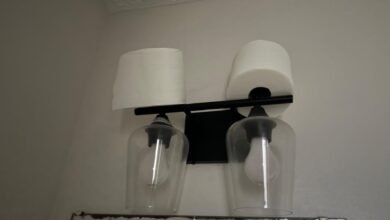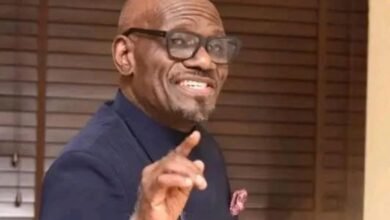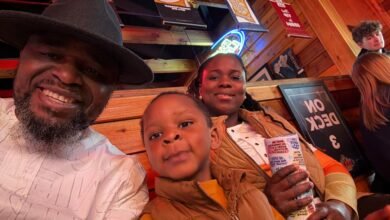Not So, My Son: A Father’s Honest Reflection on Nigeria’s Democracy On ‘Democracy Day’
#MinistryofClarity #HomilyFromThePew

On a day that has been dubbed Democracy Day, June 12 in Nigeria, I find myself unable to join in the celebration. Not out of rebellion, but out of deep, principled conviction. At 55 years old, having studied governance, democratic, autocratic, constitutional, parliamentary, military, across cultures and continents, and having lived through decades of Nigerian experiments, I cannot in good conscience call what we have in Nigeria “democracy.”
By what standard? By whose definition? By what measure in historical or modern political philosophy?
This is not cynicism. It is clarity. And clarity demands language. That is why I’ve long argued that Nigeria, and many African countries like her need to create their own Sociopolitical Dictionary. A dictionary rooted in the truth of our practice, not in borrowed labels. Our reality does not match the definitions we quote. It’s time we admit that.
Consider our schools. What we call “public schools” and some private schools in Nigeria cannot stand next to the dictionary meaning of “school”, at least not as it was framed in the societies from which we borrowed the term. When the British say “school,” it evokes a certain infrastructure, curriculum, standard, ethos. But in many parts of Nigeria, the reality is dilapidated classrooms, unpaid teachers, children learning under trees. How dare we use the same word?
The same can be said of “hospital,” “university,” “justice,” “election,” and “democracy.” We recite their dictionary meanings, we teach them in social studies and civic classes, yet in real life, they mean something else entirely. In truth, they are only shadows of their intended substance. And worst of all, we normalize this contradiction, passing it on to the next generation like cultural folklore.
But not in my house.
This is not the lie of definitions I want to tell my son.
This is not the vocabulary I want to hand over as his sociopolitical compass.
I will not gift him a dictionary full of deceptive definitions. I will not be complicit in the whitewashing of systemic dysfunction. I will not raise a child who thinks Nigeria practices democracy when what we have is often rule by a few for the benefit of the few, through the manipulation of the many.
Legacy demands truth.
Parenthood demands courage.
And so, I will sit him down and teach him the real meaning of democracy. I will point him to its etymology, demos (the people) and kratos (power or rule), and then I will ask him, “Where are the people in Nigeria’s power equation?”
He will see that no Nigerian constitution has ever gone through a referendum. That most of our constitutions have been foisted on the people, not derived from them. He will learn that our electoral processes, the so-called “will of the people” are often marred by rigging, manipulation, vote-buying, judicial gymnastics, and a disturbing silence from those who ought to know better.
I was listening to my nephew’s online civics class recently. They were teaching about democracy and the electoral process. “Once you turn 18, you can vote,” the teacher said. “Your vote counts.” I couldn’t help but ask: Which vote? What count? Whose result?
So I sat him down afterward and told him what they would not. That in Nigeria, elections are not always expressions of the people’s will. That votes are sometimes counted before they are cast. That even our courts have, on multiple occasions, overturned electoral victories due to irregularities. That in a real democracy, the people are the custodians of power, not captives to it.
We cannot continue to export imported definitions while practicing localized dysfunction.
We must develop the courage to say: This is not democracy.
It may be transitional governance. It may be pseudo-civilian rule. It may be electoral autocracy. But until power is truly vested in the people, and not in the pockets of political elite, we must stop branding it falsely.
There is no shame in defining our reality. The shame is in pretending we have arrived when we haven’t even started the journey.
Let us define our own practice, truthfully, soberly, and bravely. Let us begin to write a Nigerian Dictionary of Social Practice, one that reclaims words from the bondage of hypocrisy.
Words like:
Democracy: not just as an annual celebration, but as an everyday practice of accountability and justice.
Elections: not just as periodic rituals, but as sacred contracts with consequences.
Schools: not warehouses of children, but incubators of critical thought and national dignity.
Awards: not souvenirs for cronies, but symbols of earned excellence.
Leadership: not thrones of privilege, but altars of sacrificial service.
And yes, we must talk about electoral reform, the true bedrock of any people-centered democracy. Reform that ensures votes count. Reform that empowers citizens to recall incompetent leaders. Reform that dismantles the current systems of manipulation.
Nigeria is not a young nation. Singapore, Rwanda, South Korea, all younger or similarly aged, have rebuilt themselves through truth-telling, civic courage, and visionary leadership. So the question is not our age. It is our will.
So on June 12, while others post celebratory banners and dance to the beat of borrowed slogans, I choose to write this lament. Not as a cynic, but as a father. As a patriot. As a man unwilling to bequeath confusion to the next generation.
Because my son deserves a vocabulary rooted in truth.
Because legacy begins with language.
Because democracy is not a borrowed word. It is a lived practice.
And until it is practiced, I will not pretend we have it.
Do have an INSPIRED Father’s Day weekend.




